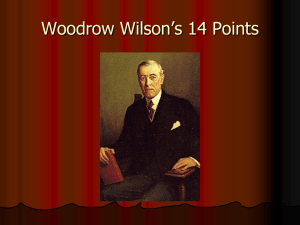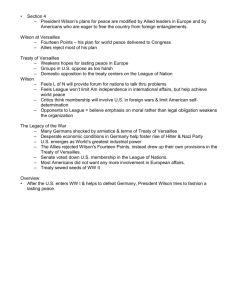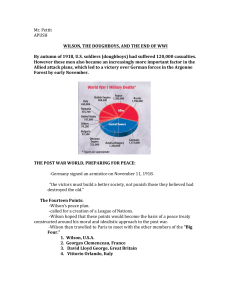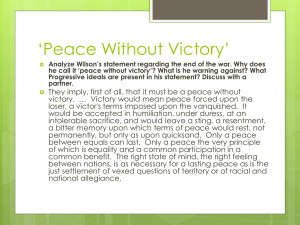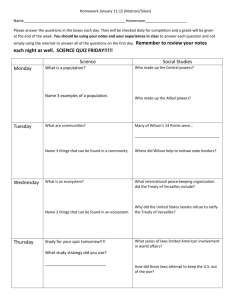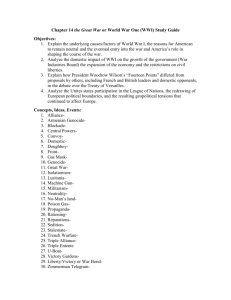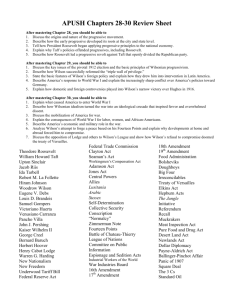Unit XVI
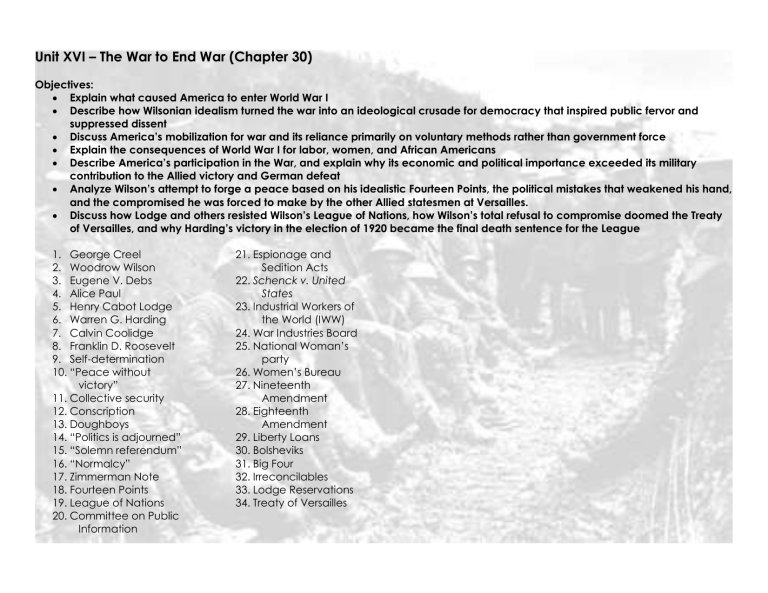
Unit XVI – The War to End War (Chapter 30)
Objectives:
Explain what caused America to enter World War I
Describe how Wilsonian idealism turned the war into an ideological crusade for democracy that inspired public fervor and suppressed dissent
Discuss America’s mobilization for war and its reliance primarily on voluntary methods rather than government force
Explain the consequences of World War I for labor, women, and African Americans
Describe America’s participation in the War, and explain why its economic and political importance exceeded its military contribution to the Allied victory and German defeat
Analyze Wilson’s attempt to forge a peace based on his idealistic Fourteen Points, the political mistakes that weakened his hand, and the compromised he was forced to make by the other Allied statesmen at Versailles.
Discuss how Lodge and others resisted Wilson’s League of Nations, how Wilson’s total refusal to compromise doomed the Treaty of Versailles, and why Harding’s victory in the election of 1920 became the final death sentence for the League
1.
George Creel
2.
Woodrow Wilson
3.
Eugene V. Debs
4.
Alice Paul
5.
Henry Cabot Lodge
6.
Warren G. Harding
7.
Calvin Coolidge
8.
Franklin D. Roosevelt
9.
Self-determination
10.
“Peace without victory”
11.
Collective security
12.
Conscription
13.
Doughboys
14.
“Politics is adjourned”
15.
“Solemn referendum”
16.
“Normalcy”
17.
Zimmerman Note
18.
Fourteen Points
19.
League of Nations
20.
Committee on Public
Information
21.
Espionage and
Sedition Acts
22.
Schenck v. United
States
23.
Industrial Workers of the World (IWW)
24.
War Industries Board
25.
National Woman’s party
26.
Women’s Bureau
27.
Nineteenth
Amendment
28.
Eighteenth
Amendment
29.
Liberty Loans
30.
Bolsheviks
31.
Big Four
32.
Irreconcilables
33.
Lodge Reservations
34.
Treaty of Versailles



